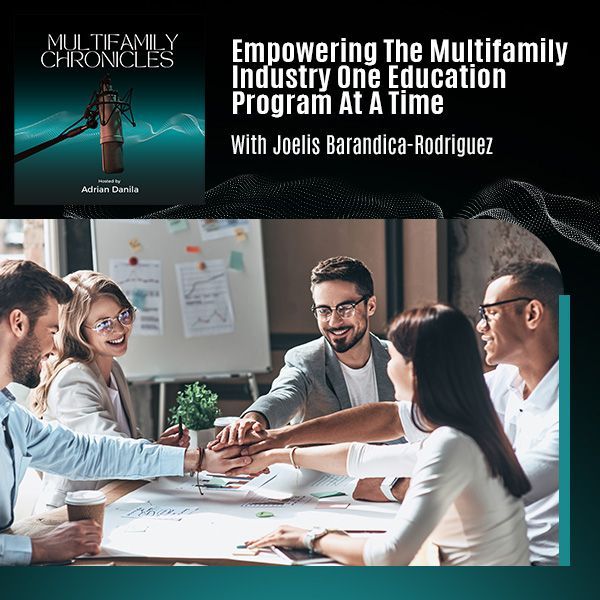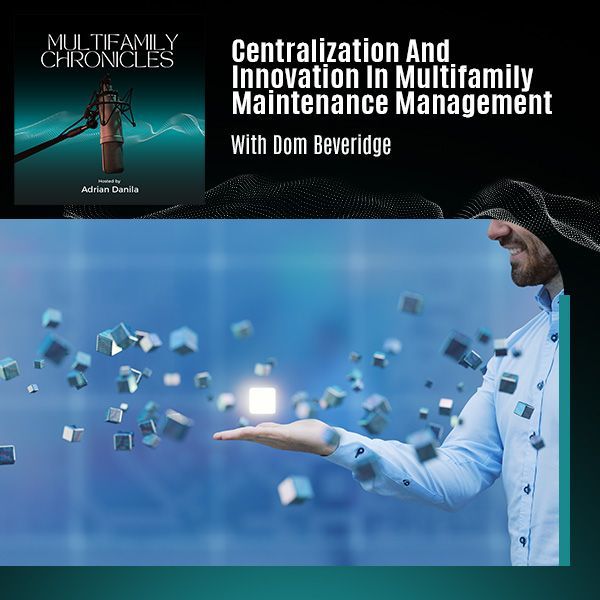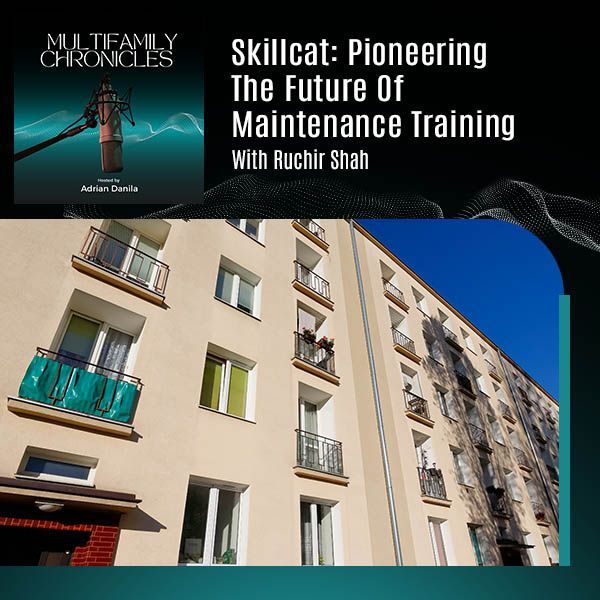How To Run A Successful Business And Become A Better Marketer With Barbara Savona
Getting into the multifamily industry might be trickier than it seems. Especially in this new digital age, business owners and investors might need to do more this time to catch up and stay afloat, or even get ahead! In this episode, Barbara Savona shares her journey of getting into project management and eventually building Sprout Marketing, a marketing platform for multifamily housing professionals. Barbara shares the hard lessons she learned in becoming an entrepreneur and a marketer in this industry and in this social media-induced society. Barbara also touches on influencer marketing, the multifamily market, audience behavior, and more! Don’t fall behind in this industry: tune in now!
---
Watch the episode here
Listen to the podcast here
How To Run A Successful Business And Become A Better Marketer With Barbara Savona
In this episode, our guest is Barbara Savona. Barbara is the CEO and Cofounder of Sprout Marketing. Welcome to the show, Barbara.
Thank you, Adrian. I'm so happy to be here.
Barbara, let's start by introducing yourself to the audience. Tell us a little bit about your professional and personal background.
Sometimes people are surprised to learn that I am half-German and half-Mexican so I always joke around that I'm a GerMex. My mom's from Germany. My dad is from Mexico. They're both immigrants to this country. I grew up speaking Spanish first, German second and English as my third language. I feel like that formed a lot of my personality going to two different cultures seeing that growing up and being exposed to that. Something fun about me, my husband built us a home in the Texas Hill Country in a shipping container. We live in a house that's made up of three shipping containers with a lot of metal and glass. It's cool. I'm a fan of housing.
I'm in this industry but I love architecture and housing as well. That is a little bit about my personal life. I have chickens, pigs and all the animals at my house. Professionally, I have been in this industry for a little over 22 years. On the property management side, I started leasing. I've grown in the industry. Several years ago, I launched a marketing agency called Sprout Marketing and that is what I do every day. I help property managers and management teams with their marketing and their retention efforts.
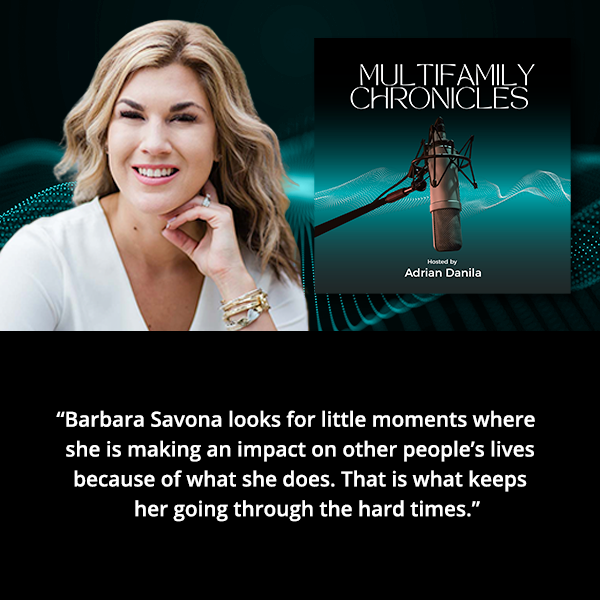
Barbara, how did you end up in property management?
My dad started as a maintenance man at an apartment community. His property manager gave him so many opportunities. He learned so many things. He got to do a lot of supervising eventually because he proved himself to be a good worker. My mom did make-readies. She helped clean make-readies. I remember being little and doing my homework while my parents were getting an apartment ready. It was in my DNA to do this. Years later, they became entrepreneurs. My dad took that experience and built a company out of it with my mom by his side.
By the time that I was ready to start college, I knew that I wanted to get a discount on my rent so I started leasing apartments. That was a way to balance out what I was doing financially. I loved the industry. Six months after I started leasing, I was working for Greystar. My manager got sick and they asked me to fill in as the temporary manager. It was no looking back after that. I got my start leasing, quickly became a property manager and then have done all the different things in between. I've had a very fast career in multifamily. I never planned to stay here but I loved it and I'm glad that I made that choice. I'm on a different side of things but I'm glad that I'm here.
Barbara, what made you switch from the management side to the vendor side? After that, what made you consider a career on your own and opening your shop?
I was working as a regional supervisor. I was recruited. I had someone come in that was working for an apartment magazine that they were launching and they were looking for somebody to be their face and salesperson. It ended up being that I almost ran the entire production of this magazine in Dallas. The opportunity was there. I was ready for a bit of something challenging and I always have had the entrepreneurial blood because I did grow up with my parents both being self-employed eventually. That was always my long-term plan. By getting that experience on the vendor side, I felt like I needed to understand both sides of the coin.
I had done the property management side. I wanted to do the marketing side so I helped launch magazines. I worked for For Rent Media Solutions, which is now CoStar and that was a good experience. In 2009 when the recession hit, we were visiting my grandparents in Germany and they have a farm. They were dairy farmers. I was sitting outside on the roof at night with all the stars thinking that I was ready for something different and I wanted to do something on my own. I think that travel and getting out of your environment gives a lot of room for creativity. I wasn't in the day-to-day. I was taking this break. I was around nature and a different culture and I start to see what is possible.
Traveling and just getting out of your environment gives a lot of room for creativity.
I came back to the States and talked to my husband. I talked to a few friends and colleagues in the industry and they were my cheerleaders. They said, "Do it. We'll hire you. Try it." I didn't know exactly what the business was going to be but I decided to take the leap. It was very scary because it was in the middle of the recession. I had a good-paying job. I was nervous but I'm very thankful that I did. It's been an incredible blessing in my life.
Barbara, what does it take to run a successful business?
There's a lot. It's like you can have a lasagna recipe and then someone else can have an incredible lasagna recipe but have different ingredients. I feel like what you bring to the table as an entrepreneur is this mix of all of these ingredients. One is your experiences in life. I have seen extreme poverty in Mexico. I have seen incredible technology in Germany. I have known being a kid that doesn't speak the language. I understand that. Those experiences created qualities that were difficult for some things to see. Being patient for me has been huge.
Even though I'm not patient by nature but I have learned to be patient. Also, being resilient and joyful. Even when things are hard, I like to be happy. I find that if I want to be joyful, it allows me to be resilient during hard things and hard times. As an entrepreneur, you are going to be knocked down over and over again. I think of those things. I also think being able to put on a hat that says, "Everything is an experiment." I'm not a failure if this doesn't work. This is just an experiment. We're trying it.

I learned that about five years in. I used to take everything so defeated, "This happened. I'm such a failure." No. Now, I tackle something and say, "I'm going to try it. If it works, awesome. If it doesn't, I'm going to tweak it and keep trying." I feel that having that experiment mindset is huge when you're a business owner because you never know what's going to get thrown at you.
That's a fascinating story and so many great pieces of advice. One thing that I wanted to pick up on was your background from your family heritage. You're looking at Mexico with economical struggles. On the other side, a lot of technology and a very modern society in Germany. What it gave you was a different perspective. I'm not born here so I come with about 28 years of different perspectives and grew up in a communist. After communism, we have a lot of freedom.
People were disoriented, trying to figure out what to do with so much freedom and economical struggles but that's something that helped me. I have a different way to look at things than most people that don't have this type of experience. I can relate to what you described from your perspective.
I can see that. It's neat. One of the lessons I learned that I love about housing is, at least what I saw, it didn't matter if you were in poverty or you had a lot. People still want the same things for their families. They want them to have a nice home and life. They have goals and aspirations. I love that. When I saw that even in property management where I've managed C and D assets, those people still cared about their homes. They didn't have the nicest amenities but they still wanted it to be nice.
That's what I love about home. It's this great equalizer. We all need a place to call home. It will always serve as the backdrop of life. That perspective is nice to know that not everybody has the same advantages but we as property management professionals have the opportunity to impact a lot of people in very small but meaningful ways.
Your home is very personal. When you think about it, only close friends and family enter that space with you, occasionally, for the most part. When you think about our workers, especially maintenance workers, they're allowed in our residential homes because they had to do repairs. They can't just do it remotely. There has to be a level of trust and professionalism that we had to project upon a residence to earn their trust because there's such a small number of people that have access to their homes and we're included in that. This brings me to my next question. Do you see any value in service teams being used from a marketing perspective to market a product, an apartment community?
I do. I would venture to say that whether someone is actively using their maintenance team as marketing or not, they are your marketing team. They're going to be one of the biggest factors. I think about that oftentimes. People don't always remember when things are going right. They remember when things are going wrong and how you respond to that. If the experience is positive in a time of crisis, I sometimes think that's more impactful than doing all the things right all the time. We remember it was challenging but it went smoothly. You said it beautifully. You don't let just anybody into your home, yet with maintenance sometimes, we just have to. How incredible if we can introduce our maintenance team and help build that level of trust.
People don't always remember when things are going right. They remember when things are going wrong and how you respond to that.
In my experience when I was a property manager, I remember specifically one of my maintenance team members that we just clicked so well. I felt we were like a power couple. It was like mom and dad. We knew everything that was going on. It was great. We didn't have social media at that time but if we did, it’ll showcase that level of trust, what a maintenance team member does and what their background is. With a lot of our maintenance team members, we think about what they can do in an apartment but some of these people are talented in so many ways. They have charisma and personality.
I feel like many times we miss out because we don't put them in front of a camera. Not everybody will feel comfortable but that's where as a property manager or a marketer, you can look and say, "This maintenance team member is funny. We can use him to do some fun videos of what not to put in your garbage disposal or this one is very serious but he has a lot of experience. He might be a good one to introduce a picture and share some facts about them." What we're doing is building trust and trust in the team that is handling such an intimate place of someone's life, which is their home. If you're not doing that, you're missing out.
I would love one day to fly to Texas, team up with you, go to some apartment communities, talk to some maintenance personnel and service professionals out there and find a few that are comfortable on a camera that we will like to showcase and do that and show how much value that type of content can bring to a community and a management company. I like to get your take on this. Most of the marketing that's done, especially the larger the corporation, the more sanitized content you'll see. It's neutral. We're not offending anyone. We have to be very as neutral as we can. By trying to do that and I understand the reasons behind it, a large company has a target on its back.
Everybody's looking at a lawsuit. I get the liability part but the message that comes through is a very watered-down message. It feels like plastic. You go to a restaurant and you're looking at food and say, "I love this food. Let me order this course." When you taste it, it tastes like plastic. It looks great in a picture but the taste is plastic. This is the feeling that I'm getting when I'm looking at marketing over a large corporation. This goes outside of multifamily too. Especially in multifamily, I see a lot of cookie-cutter type of stuff that's flooding the internet. What's your take on that, Barbara? Do you agree or disagree? What's your opinion on what I said?
I like your analogy. That's so good. That's such a thing, watered-down. I watch the patterns of my marketing. When I have very polished marketing, it appeals to some. There are different vehicles. If somebody comes and they want to watch training, they're going to want a sense of professionalism at the moment for that. I also think you have to know your platform. I agree with you. In one of my highest watched videos on Instagram, I was walking and talking through some things. I wasn't the best dressed up that day. I wasn't even planning on doing it. It's because there was movement and action. They could see there was real feeling behind it. There's this balance and that's where the struggle is.
In a world where everything is getting canceled and nobody can make a mistake anymore, which I don't agree with, we're human so we're going to make mistakes, I understand the liabilities. People don't connect with logos. They connect with people. When things are too staged, people can see that. Why is authentic content getting engagement? It’s because that's what people want to see. They know when they're being sold to. I always say the website is like your mom and dad. Everybody needs a parent that's going to tell you what is what, your policies and procedures.
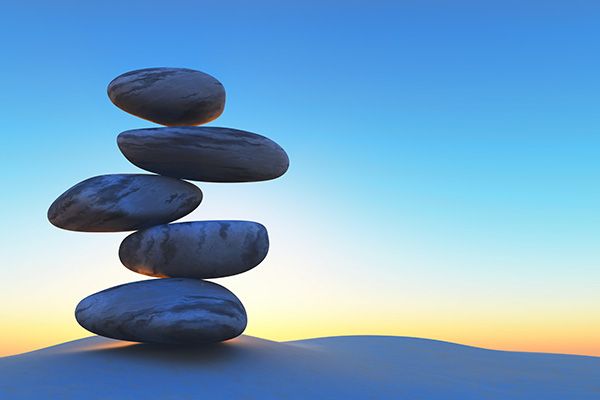
Social media is a little bit like the fun aunt or uncle. That's my role. I'm the fun aunt in my family. Sometimes, as the fun aunt, you maybe say things in front of the kids that you're not supposed to and then you're like, "Oops. I'm sorry. Don't tell your mom." Social is a little bit more where it can be like that. I do think you have to know who your team is, know their personalities and have boundaries in place. That can be super effective when you let people bring their personality to the marketing.
One other thing that I used to say about super-sanitized content is that it has no soul. It's soulless. The best example of the value that's into unstaged, raw content is that when you look at consumption from a consumer standpoint, how much regular TV channels are being consumed versus what's the consumption on YouTube? You're talking about people that are recording themselves playing video games. Not only that but they get millions of views and are making millions of dollars.
That's not happening by accident. It's the behavior of the consumer. That alone should probably make a lot of companies out there consider a mix. I don't think it's a work type of situation like you. I agree that it has to be the right mix but then introduce something that looks less staged, less edited and more natural that comes from the heart of people that are passionate about the work that they do. That sells like crazy.
Sometimes people ask me, "I want to be a better marketer. How do I become a better marketer?" I always say, "Watch your behavior." When Black Friday was coming, I paid attention to what emails did I immediately delete versus which ones did I save? When I'm listening to a TV show, I stopped. Normally, you fast forward. What commercials make me stop and watched the commercial? What you said is exactly right. We're seeing how people want to consume content. If we're stubborn and try to do it the old way, we're going to get the old results. We then adapt it because we're watching it.
That's where that experiment mindset comes in. Give your team a little bit of leeway and freedom and then try it and see what happens. If the results are there, then it gives you a little bit more confidence to keep going down that path. You don't have to take off all the barriers but try a little bit. If we're trusting people to go into their other people's homes, we can trust them to do a little bit of social media content too. Where's the balance there?
If you are trusting me, trust me all the way. Why not just trust me all the way? Barbara, you also have a podcast. You are a podcast host. Tell us a little bit about your podcast.
The podcast started years ago called Marketing Home, Marketing You. We're almost at 100 episodes. I started it as a way to connect with other industry professionals. I then decided that I didn't want just industry professionals. I wanted people outside the industry as well that could help with different things. You'll find in there guests like CEOs that have done incredible things but you'll also find property managers that are good at what they do and I want to hear their stories too. I do a lot of solo episodes. Those are almost more like let's do a marketing class together. I try to teach a lot of the principles. I'm a principle person. I love to talk about trends a little but I like to talk about principles. Those don't go out of style.
The podcast has been a way for me to share that information. I used to do a lot of speaking events. I don't like to be away from home as much anymore so I don't do that as much. This has been a way for me to reach a way bigger audience and do a little bit of mentoring, which I like to do. I just don't have the time to do as much one-on-one as I'd love. I try to view the podcast as if I was starting in this industry, what are the kind of things that I'd want to know? If I'd been in it for 20 years, what are the resources that I need?
We had a psychologist who talked about resiliency and how to build it. We have Bill Nye talking about leadership and different things like that. I've got some great people lined up but I want to still connect with the on-site teams too. I feel sometimes those are the people that are doing the day-to-day and I'd love to hear from them. You'll find a lot of those guests on my podcast as well.
I had to share right here with the audience that I made a point to listen to a few of your episodes in preparation for this episode to get to know you better before we meet for the first time via video and I've been fascinated by it. I couldn't stop listening to it. There were several episodes and I picked different topics, whether they were educational in marketing, especially with your conversations with Bill. He's a phenomenal individual. I'm very fortunate that he agreed to come to my show. I had an episode with Bill. I hope to get him back out here soon for an episode. It's fascinating stuff to me. There's so much information.
They're so educational and entertaining at the same time. They're not just something boring that you say, "I'm going to sit here for 25 minutes because I need this information but otherwise, they're boring." They're great. I do encourage everybody that’s reading to follow your podcast. You're not going to regret it.
I appreciate that vote of confidence. I'm going to try to keep them not boring. We don't want anything too snooze-worthy.
Keep up the great work because it's fantastic. You have a great thing going right there. I want to stay with the podcast a little bit, Barbara. Do you find any benefits in having a podcast? Does that help you with building your personal brand and company brand? Does that help with your business? If it does, share, if you don't mind, a few ways in which it helps you.
When I first started the business several years ago, speaking on stage was the only way to get my name and brand out there. I did that a lot. I did it at first for free and then once I proved myself, I was paid to do it. I still do some of that sometimes. You only impact the few hundred people that might be in the room. With the podcast, first of all, my strategy has always been I want people that are like-minded and connect with me because we mesh well together. I want new ideas and I want their ideas. This was a great way. Somebody is going to spend time with you listening to a podcast, whether they're driving or walking their dog or it's in the back while they're doing something. To me, that's a huge level of trust.

I have seen my downloads grow over the years. I feel like podcasting hit multifamily, even though I've been doing it for a couple of years before. It feels like now, it landed. What typically happens is people will listen to a couple and say, "I like this girl's style. I like how she teaches. I like the people that she aligns with." They'll then go in and join my free membership. My biggest business builder has been an email list. Sharing some of my strategies has been to educate because I feel when you give people those tools, they're so excited and thankful that they're learning something. I'm sharing stuff that I've learned.
When I teach it, it reinforces it to me. It's a very big win-win. I'm learning from others. They then might join my email list. After that, they get nurtured. They get more information. I don't overshare stuff. I'm not a huge hard-sales pusher but I've seen this as a funnel. People come to the podcast, join and learn more. What's nice about it is everything that I share on the podcast is what my business is about so there are no surprises when they become a member. It's just more of the resources that they want. I found it to be a great way to qualify prospects and leads and a lot easier than going to trade shows. I still do some of that but I feel like the podcast has given me a larger vehicle, voice and audience.
I was talking to one of my other guests. I said to him the same thing. One of the reasons why I'm excited about the opportunities that a podcast brings is that a conversation between the two of us is just the two of us witnessing. A conversation in front of an audience of 200 people or 1,000 people reaches 1,000 people. That's it. A conversation that's recorded on a Zoom call, whatever way you have it recorded and put up on YouTube could gain hundreds, thousands, tens of thousands or millions of views if it's very interesting and you get lucky. There's also there to stay in perpetuity. If you put that out there and you never mess with it, you don't delete it, it's there to stay. Some of the content is relevant not just now but years from now if it’s evergreen content.
It gives you a place to stake in time. You're getting that reach without doing the work afterwards. It's just there and it's there to be found. The other thing that I have found is also, for example, you and I have not met before, are meeting here for the first time and have been connected on LinkedIn but after you spend an hour with someone on a podcast, you feel like you're friends with them. Your network then goes from a LinkedIn hi, thumbs up, insightful to, “I'll know a little bit about you, you know about me.” To me, the reach that then has is huge. It's enriching to yourself personally but then it also builds your brand as well.
I agree with what you said because my experience has been the same. With all of the guests that I have on my podcast, there's already a relationship that's been built. Most of my guests on a podcast, I never met in real life. Most of them with very few exceptions, probably 5 to 10 exceptions out of almost 50 episodes, we never met in person. It's pretty amazing. I am a connector. It's just who I am. I love connecting people and connecting with people. Every time I had a guest on my podcast, I get excited because I get to spend an hour with you.
I bet that not so many people outside of your close circle get that opportunity so for me, it's humbling too. For someone to commit for an hour to sit down with me and have a conversation about whatever is a big deal to me. It's very important. I take that very seriously. I'm very grateful for it. Barbara, next thing, I want to touch on this labor shortage crisis. Companies are hurting out there in a big way, multifamily, especially. Our turnover rates for an employee are probably very close to hospitality. It's crazy. It's out of control.
I did some numbers and research for a presentation that I've done. We're right there. The turnover rates and shortages are incredible. Probably 30% to 40% of the site positions are not filled. They're vacant. I wanted to get your take on the whole phenomenon and your opinion of how we got here into this situation that we're in. Secondly, how can marketing help companies with recruiting efforts to bring people in?
The pandemic made people pause and look at their life, how their employers were treating them and how fulfilled they were. For some, it was enough of a pause to take a look at what was going on and decide that they didn't want to be treated the way that they were, felt undervalued or wanted a different change. The other thing that's happening is with a lot of leadership being on LinkedIn, people can see how other leaders are treating their teams so there's not this isolation. I know not everybody uses that but some people do use that as, “You need this job. You need me.”

People are starting to see their value and that there are other leaders that they are maybe more interested in working for or places that will be more meaningful or fulfilling. It’s maybe an unpopular opinion but if you are experiencing that, first, what accountability as a management company can you take for yourself? Why are we here? Some companies are not facing that. That's the truth. Some aren’t. What is different? There are some that just because of their magnitude, they're so big that they're being impacted. First, it’s personal accountability of what have we done that maybe has made people not feel valued, not feel appreciated or felt like they could be replaced with anybody else.
When it comes to marketing, you can have the best marketing campaign for hiring but if your culture doesn't match, then your retention isn't going to be there. The marketing has to match or else people feel like they've been catfished. It's like a trick. What do I think is good marketing? If you have a good culture, show it. I love seeing leaders on LinkedIn showing what they're doing because it is a recruitment effort. Several years ago, Tony Susa and I had a conversation about marketing to recruit. He's done a phenomenal job because that's just who he is. It wasn't fake. He's a good marketer too but that's who he is. He's showing his leadership style.
When you think about that, you as a leader can show your leadership style. This is also where there's a divide. There's the company and then there's the leader. The leader can go anywhere. If the leader builds a loyal following, that's what a personal brand can do. You as the leader will not have a recruiting problem. That's what an incredible opportunity is. A management company should embrace people that are showing up and building because they're helping build the culture of the company.

Rather than stifling them, because I know some companies are intimidated when their employees get a voice on LinkedIn, to me, I would say, “How do we make them so excited that they want to be brand ambassadors and we're supporting their efforts and get the benefits of that?” It can be a synergistic type of relationship where a company benefits from a leader actively recruiting by being the kind of leader that he or she is and showing it.
Marketing is huge and it's beyond pizza parties. It's giving people meaningful work. It's letting people have a certain autonomy. What's important to that individual? What they're wanting in life helps them get there. They're going to be committed. There are so many layers but those are a few of my initial thoughts on recruiting and marketing.
I love everything that you said, especially the last part, the one with leaders, being out there, letting people know what they're doing and bringing them in on their journey. You also mentioned Tony Susa. He's probably the best example that I have in the multifamily of an industry influencer. I'm going to call him that way because he is an industry influencer. There's no doubt about it. With the traction that he gets, his charisma and the way he leads, people are in love with us. He's like a magnet, he attracts.
Barbara, my next question is, do you think that there's a good practice for companies to look for industry influencers and hire them to help with their company brand, recurring efforts and with marketing in general, improving their brand, associating themselves with influencers' brands by hiring them so their brand increases in value and visibility?
I don't know about necessarily going out and hiring an influencer for that purpose. If I was looking and hiring, I would consider what kind of a presence someone has and what kind of a reputation they have built. When I think of the word influencers, some people are like, "That's such a word." Influence is you've gotten enough trust that people are going to be influenced by what you say, which means that you hold sway. It's the new sales. That's how we influence. I wouldn't specifically hire someone as an influencer. I would look for someone that has taken the initiative to build their brand and has carved out influence in our space and say, "I want someone like that."
Influence is really just that you've gained enough trust that people are going to be influenced by what you say.
That shows a lot of initiative and drive. That's someone that you want to align yourself with. At the same time, I will say that a company could also look at that person and say, "Will they be loyal to my brand?" That's where the alignment piece has to be good. It has to be that company, the influencer and the person that holds influence are so aligned that it makes sense and that they're going to want to talk about it.
The second that somebody starts talking about a company or a brand inauthentically, people can feel it. If you hire somebody for that, it's like, "I want to hire somebody that has these qualities built in because if they align with my model, they're the kind of people that you can't keep quiet because they love to talk about things that they love and they're passionate about." That's my approach to that.
I want to be very specific. By industry influencers, I meant a person that's a very accomplished professional in the industry already. First of all, they're qualified for whatever position they're applying for but they're bringing more to the table than just the expertise being the expert matter like the Director of Operation, the Vice President of Operation, the Regional Manage Director, whatever the title is. They are that person that is very competent in their field but they're also bringing up the audience, people who trust, respect and follow them.
When they're coming into this company, they're becoming a part of the company so they're raising awareness about what's going on at the company. By influencers, I wasn't necessarily thinking of an influencer in general like someone that's an influencer for a living. They're using their personal brand to help sell products. That could be a part of it but the main part still has to be that they're competent in the work that they do.
As an entrepreneur, leader and owner, this is the other thing that I would add to that. I would sit down with that person and ask like I would any candidate, “What's your ultimate goal? Where are you wanting to go?” Also, make sure that our paths are going to align there as well. What are their ultimate goals and can they align with our brand? Nobody stays at a company forever so we're not looking for that. We're looking for that influence. On the other side of that coin, I also think influencer marketing to lease apartments can be very successful from the other side.
Having an influencer in a space where you do a trader for an apartment type of a thing and they're showcasing their lifestyle is a very cool way. There are different boundaries there because it's like having your maintenance team do a video. When you have an influencer that's posting pictures, there's got to be guidelines because they're coming back to your brand. All of it comes back to the brand. As business owners and management companies, that is where we have to make sure that we're on the same page.

You brought up influencer marketing and that would be the next topic that I wanted to ask you on a broader scale. Besides helping to rent apartments, can you think of different ways where influencers will be very efficient in doing marketing for any size of the industry? It could be the operational side where they're selling apartments, you already covered that but it could be the vendor side, for example, someone that is very trusted within the space and take and endorse different products or services. I'll make a parallel with Instagram influencers. They're helping sell a variety of products or services. Is it something that you see happening soon? Is it happening already? Will it happen in a near future or you don't think that will necessarily touch the multifamily space much?
It's happening differently already. That's what we were talking about even with our podcast. When people align with your brand, there's a level of influence there. For example, if someone trusts me with their marketing and then I recommend another vendor or a program, there's a level of trust there. That happens a lot. I see that with even speakers within the industry like Liza Chasin. She's very honest. She's always sharing some of her insights and thoughts. Where it gets tricky is like an Instagram influencer. When you know that someone is getting paid for their influence, there's always that question of whether it is genuine or just something that is getting paid.
For a lot of the way that it is, you have to trust that the individual's only going to bring to the trustworthy table things. We'll see it in different ways. As careers develop, I'm curious to see, even with some of the LinkedIn influencers and personalities, if that becomes a career on its own. Does that become like the influencer is trialing different products, partnering with different brands and showcasing that in a real way? It's going to take a unique person to do it and they're going to have to be very trusted. I could see that happening. I feel like people love to get behind people when they get excited about it. It's a possibility.
Barbara, you help brands all the time. That's what you do for a living. I want to focus on personal branding. How important is it in society, especially in the labor market? Everybody has a brand. Everybody is a brand. Let's make it very clear here, whether it's intentional or unintentional. If you're not building your own, somebody else is going to build it for you.
They're going to feature in any colors that they want and desire unless you take action and you build your own the way you want to be perceived. Do you see value in investing in personal brands? Having a presence on LinkedIn, posting over there, interacting with other posts and sharing knowledge on LinkedIn, do you see that as being valuable for someone to lend a career opportunity to help them with their career now, in the future or both?
A thousand percent now, in the future, forever. My response to that is something I talk about a lot, which is betting on yourself. For example, people feel safe putting their money in a bank and knowing that they're going to get a certain percentage of a return. When you invest in yourself, there's no cap on the return on investment there. There's none. The cap is you. The cap is your potential, your work ethic and all of that. When you start building your personal brand, I see that as this investment that you're making in yourself that says, "I don't care where I end up landing."

When I started as a leasing agent, I didn't think that 22 years later I would have a business that gives me incredible freedom but that was because I built a reputation, which is what I equate to a brand. Now, it takes a lot more. It's very intentional. You're thinking, “How do I want to be perceived? What kind of a thought leader am I? When people think about me, what do I want to come to mind?” There's a huge value. Say, you forever want to work in this industry, where you can go is limitless. Let's say that you don't want to be in this industry, you want to be your own entrepreneur. That is also a possibility. A lot of it is one connection.
I'll read something that somebody posts and I'll see we could be the perfect partner for this idea. All of a sudden, you've got this web of networks. My advice would be to think about the things that people always come to you for. When I started thinking about that, people would come to me for a plan. It was always like, “How do I distill down an idea and relate it to what we're doing?” I would troubleshoot and say, "Here's what we can do. Here's an organized very systematic way." I started to see my friends doing the same thing. "I'm going through this. What do you think I should do?" I'd be like, "Let's make a plan. We can do it."
I took that and that became my methodology. I like classics. I would pause and say, "What do people come to me for? What's my fun quality? What knowledge do I have?" Start talking about those things. Post about those things. Share those things. Day-to-day, look for stories that are happening in your life. Take a picture. Have an experience. Intentionally, build the brand that you want. You might not be thinking about where you're going to be several years from now but if you're putting that work in now, the opportunities open to you several years from now are going to be huge. Do it and don't be scared. It's an experiment mindset. Try some stuff and see what works. It's worth the effort.
You might not be thinking about where you're going to be 10 years from now, but if you're putting that work in now, the opportunities open to you 10 years from now are going to be huge.
I happen to agree with you 100%. Time will tell if we're right or wrong. We'll see. This is going to stay on YouTube forever. We're going to go back and watch several years from now to see if you were right or not about this. Barbara, the next section of this conversation is I have a few rapid-fire questions for you. Books. What are your favorite books, fiction, nonfiction or professional books?
I love behavior change, Tiny Habits by BJ Fogg. Atomic Habits is more scientific and actionable. To me, this is huge. I also love this older Tools of Titans from Tim Ferriss. It's so cool that you can learn little tidbits from the most incredible people. For people that want to scale their business, Scaling Up is one of my favorites. That one is by Verne Harnish. I will share two other ones. One good one on leadership and why certain things aren't working in your culture. There's a book called Leadership and Self-Deception by the Arbinger Institute. We read it and my whole team has gone through it. The other one is Four Thousand Weeks by Oliver Burkeman. That one is more about life and the way you're spending your time.
Excellent recommendations. I wanted to say that Tools of Titans is one of my absolute favorites. Just like one of my previous guests said, Jack Daly. If you want success, model the masters. That book right there, you have to read it and follow a few things, not all the things that you're finding in a book. You'll find success way faster without reading it. Let's talk about failure, Barbara. How did a failure or apparent failure help you for future success in your career?
Early on when I started Sprout, I landed a big client. They were my client for five years. They had a change in leadership and I lost $20,000 a month in client. That was huge at the time because I have my team all this revenue. I knew it was coming. I had a 30-day notice and I thought it was going to be the worst thing. What ended up happening is I didn't like working for that client. We were not aligned in the way we did business. It was always a struggle.
Losing them, seeing that we were fine on the other side, that we had to figure things out, created a different way of doing business for me and gave me the freedom to say, "I want to work with people that we're a match for and not be a hostage to any kind of a client, no matter how much billing." It was a huge failure that turned into an opportunity moment for me.

What advice would you have for a young person getting ready to enter the real world right out of high school or college?
This one is probably going to be not what you expect but if you want real freedom, don't get in debt. I have worked hard to be a debt-free person for as long as I can. I feel that that's what gives you a lot of freedom. You don't have to take on every opportunity, say yes to every single thing and constantly work. It allows you the freedom to make some decisions. If possible, don't owe anyone anything. That gives you a lot of flexibility.
That's a great piece of advice. It's not something that you would learn in school for sure.
It's very unconventional.
Barbara, in the last couple of years, what belief, behavior or habit has improved your life the most?
I grew up in a time when I thought that I had to say yes to every single thing. I thought that I had to give everyone my time equally and be available to everyone. For me, the pandemic was a slowdown time and I realized a need to rest and also keep my circle tight and then give time to others in a way that felt very generous and authentic to me but not in a way that burned me out. I'm not going to respond in five seconds to an email and a DM. That's not who I am. When I do respond, I respond thoughtfully and align with people. I don't try to expand. I guess the biggest change is it's okay to say no and stake a rest. The earth needs rest. We need rest. Constantly going 24/7, which I did for many years, is a quick route to burnout, at least that was my experience. That's a new thing for me, rest.
Barbara, when you feel stressed out or overwhelmed, what do you use to get out of that state of mind? What do you use to get back on track?
For the immediate, I always say change your environment and walk. If I can go for a walk and get outside, it immediately clears my head. I invested in a treadmill in my office so when I'm feeling that like moment, I get on there for ten minutes. I put on my tennis shoes and I'm in a different state of mind. Every week, I keep a frustration list. Anything frustrating that week, I write it down. I don't try to tackle it at the moment but I spend an hour every Friday looking at that list.
I look for the week ahead and say, "Was it that I booked too many appointments? Was it that I wasn't prepared? Where was my frustration? How do I not repeat it next week?" That has helped me a lot with overwhelm. I find that I'm not making the same mistakes over and over again because I'm taking time each week to study myself. A huge lesson is to take time to study yourself and your behavior.
Barbara, we're about to bring this to a close. I wish we could have kept going for a lot longer. Is there a question that you wish I would've asked that I didn't? Is there anything that you would like to share with the audience that you didn't have the opportunity to do during our conversation?
You asked some beautiful questions and I have loved getting to know you. My message to our industry would be we've done things one way for many years and many people are feeling burnt out. One of the privileges that I have is that I'm not a supervisor to the teams. Managers feel very free to share with me and my team their real challenges. They are overwhelmed, overworked and undersupported. If you're in a role of leadership, stop and see how your people are doing. If you're on-site, whether it's the maintenance team or the property management, keep investing in yourself, know your value, set your boundaries and align with a company that knows what you're worth.
People get in trouble for saying stuff like that but I feel like our lives are very filled with a lot of challenges. I hope that we can do work that we all love. Getting back to the fact like we talked about at the beginning, remembering why we're in this industry. We're impacting people's lives. Look for those little moments where you had that impact and it can fill you up to keep going during the hard times.
This is so great. I couldn't think of a better way to wrap up the conversation. Barbara, it's been a real pleasure. It's been so great to have you. Thank you. I appreciate the time that you give us. I hope that we could do a second episode down the road if you'll be interested. I would love to do a continuation of this conversation because it's been so great.
I would love to because we're best friends now that we've spent an hour together. Thank you, Adrian.
I feel that way. Everybody, thank you very much for reading. I hope to have you back in the next episode. Have a great time.
Important Links
- Sprout Marketing
- Marketing Home, Marketing You
- Bill Nye – Past episode on Marketing Home, Marketing You
- Psychologist – past Episode on Marketing Home, Marketing You
- Bill Nye – Past episode
- Tiny Habits
- Atomic Habits
- Tools of Titans
- Scaling Up
- Leadership and Self-Deception
- Four Thousand Weeks
- Jack Daly – Past episode
- https://YouTu.be/xAI59uKevs4
- https://www.WatchYourBusinessSprout.com/sprout-marketing-blog/tag/Barbara+Savona



